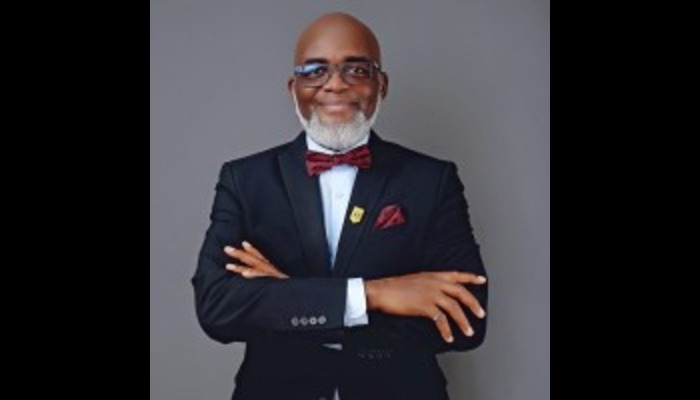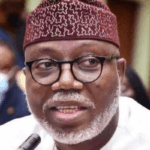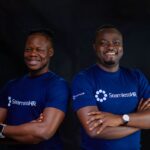Human resources (HR) leaders in Nigeria have been urged to embrace Artificial Intelligence (AI) as an indispensable partner and not a threat to human potential.
This was the main challenge issued at the 'Reimagine HR 2.0' conference on HR technology and innovation, organized by SIAO Partners and themed 'The Rise of Smart Talent'.
The central message of the conference was expressed by Victor Banjo of Lagos Business School, who stressed the enduring importance of human interaction. He added that, despite technological advances, “business deals are still closed over lunch, not over chatbots,” underscoring the need for the human touch in high-risk professional contexts.
Also read: AI and the future of work in Nigeria: Why talent leaders must act now
Samson Iyayi, Head of HR Consulting at SIAO Partners, worked on this, creating a clear marker for the role of HR. While acknowledging that AI effectively processes large-scale productivity gains, he stressed its fundamental limitations, noting that “AI can tell you who is producing results, but it can't understand who is quietly wasting away.”
Arguing for a symbiotic relationship between man and machine, he said, “AI may be the brain, but HR must remain the heart, and when the brain and heart work together, organizations truly thrive.”
From manual screening to automation
When considering the evolution of recruiting, Banjo provided a clear distinction between HR of the past and present. He recounts leading a major recruitment campaign for British American Tobacco in 2002, which required his team to manually sort over 20,000 CVs to reach only 206 hires.
This process, which relied on intuition and structured assessment, generated strong talent outcomes, many of whom have subsequently moved into senior executive roles globally.
However, he acknowledged that it would be unwise to repeat the practice today, highlighting the importance of deploying algorithms to handle the data-heavy lifting at scale.
He also highlighted the current success story of Lagos Business School, where staff morale has improved since the AI agent ‘Nexa’ started handling frequent customer enquiries. He described Nexa as “a peer rather than a tool”, freeing up the human team to focus on meaningful work.
Also read:The future of work in Africa: Trends every CEO and HR leader should keep an eye on
Banjo emphasized that AI replaces HR capabilities by providing better skills to professionals. He warned that the real risk to HR is not technology, but leaders who “lack the mindset to ask the right questions of the data.”
They concluded that HR professionals should resist the desire to automate empathy and instead focus on becoming “guardians of humanity” in an AI-powered workplace.
The Rehumanization of Work: Defining 'Smart Talent',
The main focus of the discussion was the changing definition of talent.
Alassa argued that AI has moved from a theoretical future to a living present, and this transformation is not just digital, but also behavioral.
Also read: Professionals are leading LinkedIn innovation to drive the future of work in Nigeria
Alsa said that the traditional idea of talent is now outdated. “Smart talent is not the same as skilled talent,” he declared, arguing that “skill is no longer a competitive edge.” True smart talent is instead defined by the ability to learn fast, adapt quickly, and collaborate with machines.
He offered a notable example, “An average nurse taking advantage of AI diagnostics can outperform a senior doctor who refuses to adopt AI.”
He predicted a deep disruption in the architecture of work, the collapse of job descriptions in favor of competency maps.
The end of performance reviews, replaced by results narratives, and the death of linear career paths, giving way to capability journeys.
He declared that the new world of work is human empathy and digital intelligence. He stressed that AI is not only re-skilling the workforce but also “rehumanizing” it, forcing HR to move away from being an administrative custodian.
AI, a partner, not a competitor
Tony Briggs, founder of DNA Learning Solutions, reinforced the key message that “HR and AI have to work hand in hand, and AI is a partner, not a competitor.”
Briggs focused on contextual relevance, warning against Nigeria's habit of “copy and paste” in technology adoption. He emphasized that most AI tools were created in different climates and work cultures, requiring local adaptation.
“Everyone here has to contextualize the use of AI… You have to put your environment into the equation.”
He also cautioned against removing the human layer in the pursuit of automation. “AI removed the human element in our HMO project outcomes; no machine can replace the human decisions required to drive outcomes.”
For those using generative AI, he stressed that “prompt engineering is now a critical skill; if you don't refine your prompts, you will get the wrong result.”
In a wide-ranging discussion, experts also warned that age-bias is quietly emerging in some companies that favor “young blood”, but countered by citing the example of Google, where former CIA and military officers now lead cyber operations, as evidence that brains are a competitive advantage.
Furthermore, with changes in work realities, the new rule is “knowledge-as-you-go”, with long, old courses being replaced with micro-modules.











